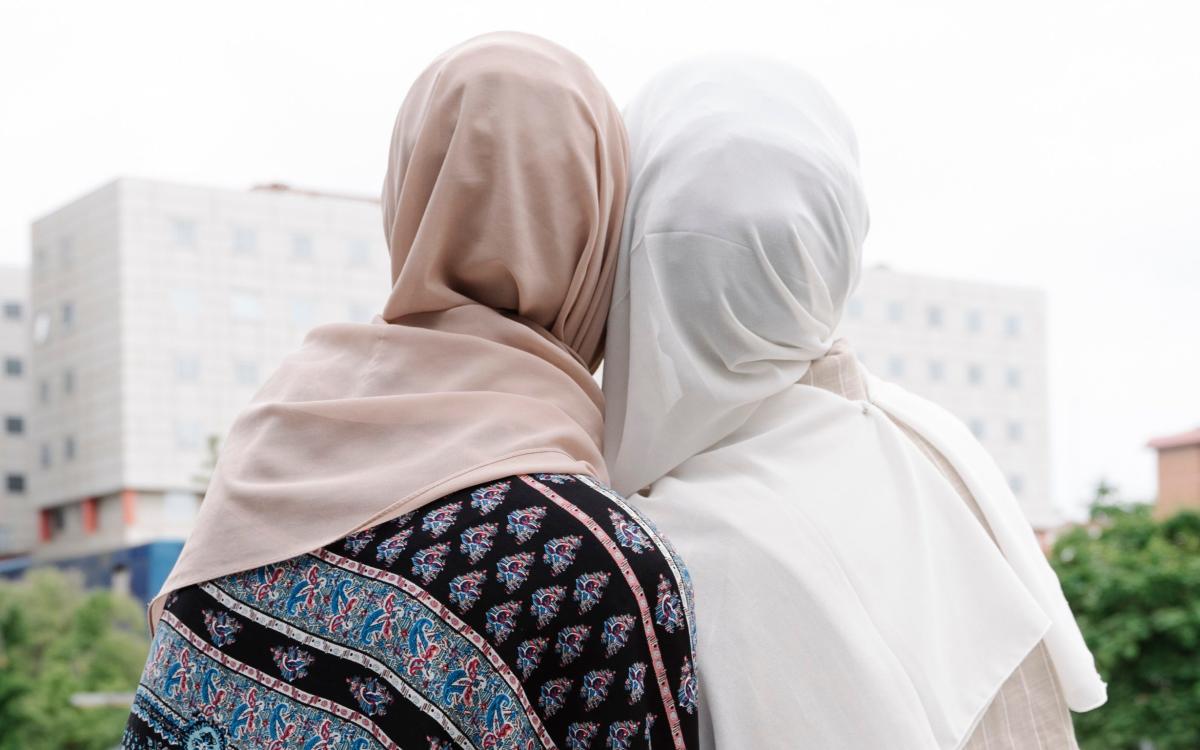
Two teenage sisters should be able to live with their abusive father to escape their strict Islamic mother, a family court has ruled.
The children, who cannot be named for legal reasons, had asked to live with their father after falling out with their mother over her push for a “forced” Islamic marriage for their older sibling, a court heard.
They had previously been sent to live with their mother over concerns about their father’s behaviour, which included stalking, coercive controlling behaviour and hitting an older sibling so hard that he dislodged one of her teeth, Judge Robin Tolson said.
But the mother’s actions – which included leaving the girls with a man they had only known for two weeks while she went on holiday – left them wanting to return to their father, the court heard.
ADVERTISEMENT
Their social media profiles also indicated the girls may “have rejected their mother’s approach” to dressing fully robed in Islamic style, and found their father’s style of wearing Western clothes “more conducive”, it was heard.
Girls refused to spend time with mother
The judge said that the mother was originally from an Eastern European country, where the couple had met, and the father was from a North African country.
Their relationship had been “deteriorating from an early stage” and after they came to the UK the children began living with their mother.
But last year both girls refused to spend time or have any relationship with their mother, requesting instead to live with their father, which led to them being taken into foster care and council social services to begin care proceedings.
Judge Tolson said: “My concern has always been whether the girls’ actions in moving to their father had been prompted by his coercive or controlling behaviour.”
ADVERTISEMENT
He added this could have been directly or through an older sibling, who is now an adult and not part of the care proceedings.
The judge explained this concern was partly because of past findings of domestic abuse made in two judgments by District Judge Rana.
The father disputed all of Judge Rana’s findings, telling Judge Tolson: “I never did those things. I will keep my word until my grave.” He stated the allegations had been invented to obtain legal aid and to hurt him. Many fathers, he claimed, were in the same position.
No evidence father influenced sisters
The local authority and a court-appointed guardian concluded there was no evidence the father had influenced the girls’ decision to leave their mother, with Judge Tolson stating the mother’s actions last year “gave rise to obvious reasons why the girls might have taken matters into their own hands”.
The girls had been removed from the mother under police protection amid complaints of physical abuse, including in a short video – filmed by the older sister – in which the mother appeared to slap or smack the younger sister.
ADVERTISEMENT
But Judge Tolson said: “It was not simply a question of physical chastisement. The mother had introduced a new partner into their lives in a peremptory manner and … suddenly left for [a North African country] leaving the girls in the care of the new partner, whom they had known for only two weeks and with whom the mother had been in a relationship for only a little longer than that.
“Furthermore, going deeper into the past, the mother had been instrumental in arranging an Islamic marriage between [the adult sibling] and a man [from a different north African country].
“The descriptions given by the father, [the adult sibling] and the girls had included ‘forced’ marriage.
“I make no such finding, although the mother’s actions certainly involved permitting her then 17-year-old daughter to enter into the arrangement in a very hasty manner and on what might be regarded as limited information and experience.”
‘Father’s style more conducive’
The judge added: “I should mention a further characteristic of the parents and the children.
ADVERTISEMENT
“Although both Muslims, the father appears to adopt a less traditional approach than does the mother. For example, he appeared in court in Western dress with a modern hairstyle.
“Although of [Eastern European] origin and a convert to Islam, the mother was fully robed (although not veiled).
“If the girls’ social media presence is anything to go by it may be that they find their father’s style more conducive and have rejected their mother’s approach.”
Judge Tolson concluded there should be a care order and a plan for permanence with the father, from whom the risk of domestic abuse had now “diminished”.
He encouraged the local authority to provide the father with, or guide him to undertake, “educational” work on domestic abuse and parenting, but warned that the care plan should not be dependent on his success in that education.
“The father is plainly never going to accept the findings made by Judge Rana and is therefore a very poor candidate for any domestic abuse work,” the judge said.
“Any care plan relying on demonstrated change in this area of the case is in effect a care plan for long-term foster care which in fact no one wishes for the girls.”
EMEA Tribune is not involved in this news article, it is taken from our partners and or from the News Agencies. Copyright and Credit go to the News Agencies, email news@emeatribune.com Follow our WhatsApp verified Channel



